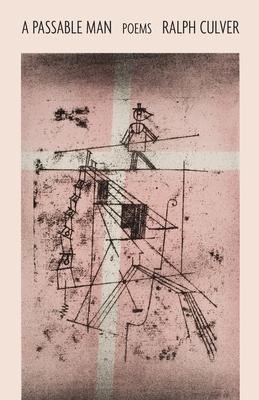Ralph Culver's is a poetry of great precision, almost delicacy, and of subtle power, deployed in poems that dwell in the ordinary and bring with them a sense of the extraordinary...; what lives between his lines is the shadow that haunts us all. In A Passable Man, he interrogates a life in five parts: "I could not keep from turning / to check, mid-step, / the footprints strung behind / in the climbing snow" (from "Prelude"). This is a life shadowed by loss and regret, moved by "the common fear, the common love/ he fell out of, now into ..." (from "Boy at the Plate"). The man in these pages is "passable," in the sense of being human: flawed, and full of care. The book? It earns my highest marks. -Joan Aleshire
Culver's lyrical narratives in A Passable Man unfold elegantly, brilliantly.... [He] pierces his subjects-"the last catamount," misunderstanding, bargainers, camping alone-with self-delighting insights...: "The sounds of water as she rises from her bath / while I slice bread in the kitchen: / How can I still feel sorry for myself?" ... Culver resolves his reveries with universal conclusions. "If we open ourselves to quintessence rather than particulars," he writes in "Resolute," "we gain in clarity, the way a bee does not recall a flower / but does its purposeful gavotte to point the way / to an abundance." -Chard deNiord
What to say in short compass of a book so rangy and compelling as A Passable Man? The collection raises so many themes and issues that brief commentary feels futile. At one point, Ralph Culver writes that
Grace,
despite our meddling,
holds doubt in check.
May everything be true,
and truth direct.
His truths, brilliantly revealed, are direct, to be sure, and often stark; but the poet also witnesses to the grace that has favored him with uncommon insight and all but matchless powers of speech. -Sydney Lea
